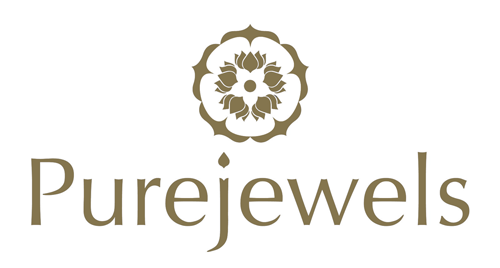Zakat Calculator
The percentage of Zakat on Gold
2.5%
Gold Price Today for 24K
£ 81.44 / Gram
Current Nisab Value
87.48 Grams
24 Carat Gold/Jewelry
22 Carat Gold/Jewelry
18 Carat Gold/Jewelry
Other Gold Valuables. (Pls. insert the Current Estimated Value)
ZAKAT PAYABLE
What is Zakat?
Zakat is a pillar of Islam. Springing from the principle that all things belong to God, it is the practice of giving away a portion of your own wealth – an important act of worship.
Through Zakat, millions of pounds are distributed in the UK every year. It is quite different to tax – Zakat is used for specific charitable purposes, nurturing the poor and sick.
As one of the five pillars of faith, Zakat is an obligation for every adult Muslim. As soon as you reach the wealth threshold, you must begin paying Zakat – calculated on the same day each year henceforth. So far it’s simple.
Now the wealth threshold, or Nisab, is a little more complicated. The Prophet Mohammed set it at a rate that’s now equal to about 87.48g of gold (note that some sources differ by a couple of grams!) and 612.36g of silver.
So at today’s gold and silver rates, you must pay Zakat if you own:
> Gold worth £2727.45 or more (in total)
> Silver worth £248.01 or more (in total).
But what if your assets are mixed – some gold, some silver, some savings? Well, you can apply these thresholds, using the current cash value, to work out whether your total assets take you above the Nisab. Many people prefer to use the lower (silver) threshold… to be on the safe side.
Note that you should use the value of gold and silver on the day you pay your Zakat. If you’re on the brink then you’ll have to check on the date.
How much is Zakat?
Zakat is 2.4% or 2.5% of your assets. It isn’t related to your income, which you receive and spend during the year. It doesn’t include your home or car unless you’ve decided to sell them, which makes them tradeable assets (seek advice if that’s the case). It DOES include your savings, stocks, watches, and jewellery. (It also includes any money that you own but have loaned to someone else.)
How much is Zakat for you personally? You will need to value your possessions (see below) and apply the 2.5% to work this out.
How to calculate Zakat on gold
You calculate Zakat on the day it is due for you personally. For most people it’s the anniversary of accumulating wealth over the threshold. To give an example, if you didn’t own many assets (so you were below the threshold) as an unmarried woman, but your assets became worth more than the Nisab on your wedding day, that’s the day you would pay Zakat each year.
Zakat is an individual tax paid by every rational, adult Muslim. So a married couple – and any of their children who have passed puberty – should calculate their Zakat separately, dividing shared assets.
First, round up your Zakatable gold and silver. These include your gold wedding ring, gold watches, and silver jewellery (as well as investment gold or silver, if you have any). Platinum, palladium and titanium jewellery is not Zakatable.
You will need to first calculate a total weight for your gold and silver. You can weigh any pieces that do not have stones (like diamonds – because stones are not Zakatable). If you have a piece of jewellery containing contrast metals or diamonds it is best to have this weighed by a jeweller, who can estimate the gold or silver content for you.
Using the weight, you can work out the current value of your gold and silver. You can obtain an accurate figure for today’s gold and silver rates – and make the calculation online – from the National Zakat Foundation.
If you aren’t confident about doing this yourself, it is simple to bring your jewellery to a trusted family jeweller and ask for a valuation for the purpose of Zakat.
When you have a final figure, you can give your Zakat as you wish – providing it fits one of the categories stipulated in the Qu’ran. There are UK institutions that distribute Zakat, but you can equally choose a charity that you feel passionately about. Your Zakat must be given to benefit one of the following:
- The poor;
- The needy;
- Those who distribute Zakat;
- The work of winning hearts (ie, reaching out to new Muslims);
- Slaves;
- Debtors;
- The cause of Allah;
- The wayfarer (emergency assistance).
PureJewels offers jewellery valuations for the purpose of Zakat
When looking for a jeweller to provide a valuation for Zakat, you will want to choose a trusted source. PureJewels is a three-generation family jeweller on Green Street in London. We have a loyal family of customers who visit the store for their special occasions, jewellery repairs, and valuations. We’d be delighted to welcome you to the store and honoured to assist you in the very private and delicate matter of calculating your Zakat.
What is Zakat?
Zakat is a pillar of Islam. Springing from the principle that all things belong to God, it is the practice of giving away a portion of your own wealth – an important act of worship.
Through Zakat, millions of pounds are distributed in the UK every year. It is quite different to tax – Zakat is used for specific charitable purposes, nurturing the poor and sick.
As one of the five pillars of faith, Zakat is an obligation for every adult Muslim. As soon as you reach the wealth threshold, you must begin paying Zakat – calculated on the same day each year henceforth. So far it’s simple.
Now the wealth threshold, or Nisab, is a little more complicated. The Prophet Mohammed set it at a rate that’s now equal to about 87.48g of gold (note that some sources differ by a couple of grams!) and 612.36g of silver.
So at today’s gold and silver rates, you must pay Zakat if you own:
> Gold worth £2727.45 or more (in total)
> Silver worth £248.01 or more (in total).
But what if your assets are mixed – some gold, some silver, some savings? Well, you can apply these thresholds, using the current cash value, to work out whether your total assets take you above the Nisab. Many people prefer to use the lower (silver) threshold… to be on the safe side.
Note that you should use the value of gold and silver on the day you pay your Zakat. If you’re on the brink then you’ll have to check on the date.
How much is Zakat?
Zakat is 2.4% or 2.5% of your assets. It isn’t related to your income, which you receive and spend during the year. It doesn’t include your home or car unless you’ve decided to sell them, which makes them tradeable assets (seek advice if that’s the case). It DOES include your savings, stocks, watches, and jewellery. (It also includes any money that you own but have loaned to someone else.)
How much is Zakat for you personally? You will need to value your possessions (see below) and apply the 2.5% to work this out.
How to calculate Zakat on gold
You calculate Zakat on the day it is due for you personally. For most people it’s the anniversary of accumulating wealth over the threshold. To give an example, if you didn’t own many assets (so you were below the threshold) as an unmarried woman, but your assets became worth more than the Nisab on your wedding day, that’s the day you would pay Zakat each year.
Zakat is an individual tax paid by every rational, adult Muslim. So a married couple – and any of their children who have passed puberty – should calculate their Zakat separately, dividing shared assets.
First, round up your Zakatable gold and silver. These include your gold wedding ring, gold watches, and silver jewellery (as well as investment gold or silver, if you have any). Platinum, palladium and titanium jewellery is not Zakatable.
You will need to first calculate a total weight for your gold and silver. You can weigh any pieces that do not have stones (like diamonds – because stones are not Zakatable). If you have a piece of jewellery containing contrast metals or diamonds it is best to have this weighed by a jeweller, who can estimate the gold or silver content for you.
Using the weight, you can work out the current value of your gold and silver. You can obtain an accurate figure for today’s gold and silver rates – and make the calculation online – from the National Zakat Foundation.
If you aren’t confident about doing this yourself, it is simple to bring your jewellery to a trusted family jeweller and ask for a valuation for the purpose of Zakat.
When you have a final figure, you can give your Zakat as you wish – providing it fits one of the categories stipulated in the Qu’ran. There are UK institutions that distribute Zakat, but you can equally choose a charity that you feel passionately about. Your Zakat must be given to benefit one of the following:
- The poor;
- The needy;
- Those who distribute Zakat;
- The work of winning hearts (ie, reaching out to new Muslims);
- Slaves;
- Debtors;
- The cause of Allah;
- The wayfarer (emergency assistance).
PureJewels offers jewellery valuations for the purpose of Zakat
When looking for a jeweller to provide a valuation for Zakat, you will want to choose a trusted source. PureJewels is a three-generation family jeweller on Green Street in London. We have a loyal family of customers who visit the store for their special occasions, jewellery repairs, and valuations. We’d be delighted to welcome you to the store and honoured to assist you in the very private and delicate matter of calculating your Zakat.









